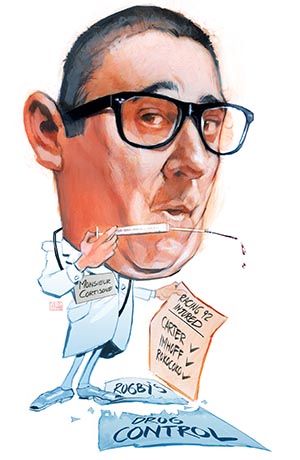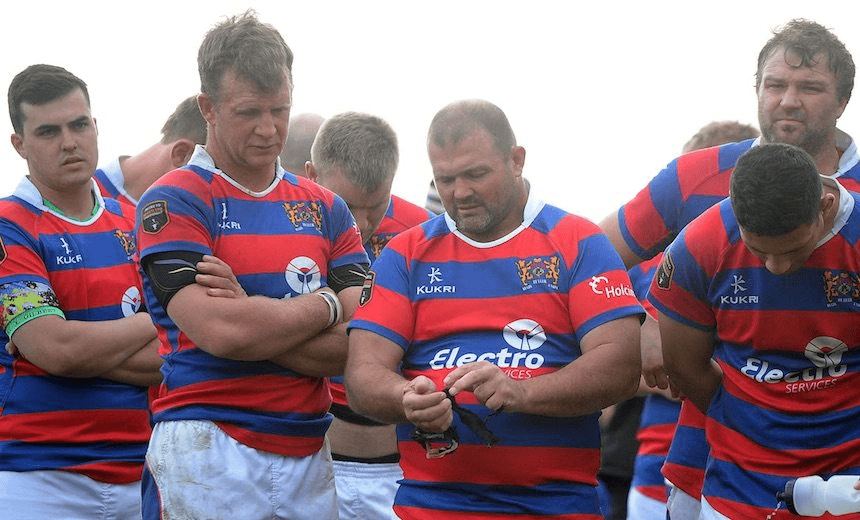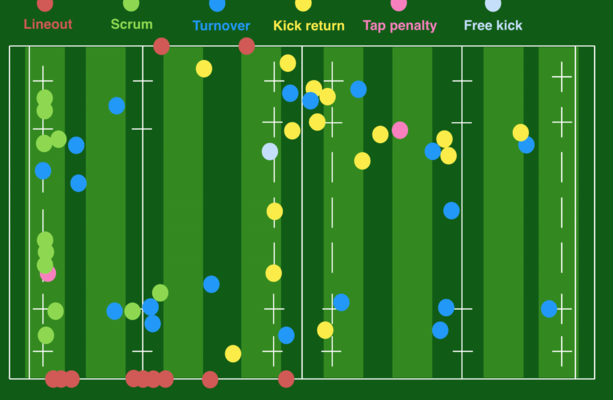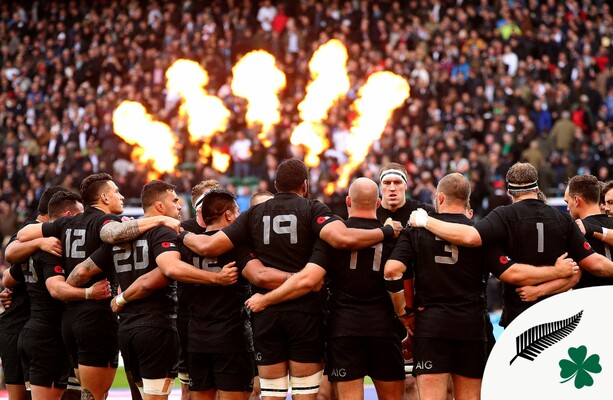Good Rugby Reads
-
This was in last weekends Rugby Paper but takes a while to be free to see on the website. Nick cain can write some silly side column rubbish to appease the masses but on this evidence he should stick to writing well thought out pieces. Thought he has some very good things to say here:
Dan Carter & Co need to be protected from medics**
At the outset it should be said that there is no suggestion that any of the three Racing 92 overseas stars are drug cheats who were abusing cortico-steroids, which is the medical name for the traces found in the blood samples taken from them after the final. Furthermore, soon after the story of the traces broke the three players were cleared of any wrongdoing by a French rugby Federation enquiry.
However, that does not exonerate our sport for its often passive and smug “it doesn’t happen in rugby” attitude towards potentially damaging drugs like cortisone. The point brought home sharply by the case involving former New Zealand fly-half Carter and his two teammates is twofold.
First, that there is the potential for abuse because Rugby Union’s procedures around the administering of a drug as powerful as cortisone are extraordinarily lax.
Unlike in cycling where a Therapeutic Use Exemption (TUE) has to be applied for with corticosteroids eight days in advance of competition, in this instance the French regulations were too elastic. All that was required was for the Racing doctor to file a declaration of usage to the FFR anti-doping department after he had administered the injections.
The leeway this leaves for the potential abuse of performance enhancing drugs like corticosteroids is significant. The pressure on medical staff to prescribe such drugs for mild or bogus injuries is not difficult to imagine, especially in an increasingly lucrative and competitive professional contact sport like Rugby Union.
It is a big loophole, and it needs to be closed as a matter of urgency, because we have ample evidence of the damage that weak regulatory systems and tolerance for drug usage have done in other sports, with cycling, swimming and track and field athletics the most obvious.
The second issue it raises is the duty of care to players. Carter, who had an injection for a knee injury, said in an interview with the Le Monde newspaper after he was cleared last week that “he didn’t know enough about corticosteroids” to comment on whether the eight day rest in cycling should apply to Rugby Union.
When he was told that those stipulations apply in cycling because it is considered dangerous, and that it could enhance performance inside that time frame, Carter said, “Okay, it’s the first time I’ve heard that”.
However, Carter – who revealed he had also had another cortisone injection before the 2015 World Cup semi-final – did reveal that he had some knowledge of the potential risks. He said: “I know you can’t take them on a weekly basis – there’s a limit may be to two a season… so you know the risk associated with it as a player…not the exact detail associated with the medicine, the long-term damage and things like that, therefore you put your trust in the doctor that he’s making the right decision.”
The question this raises is when does the duty of care that this sport – and its countries and clubs – owes to players become blurred by the desire of those players to play through injury to achieve their dreams – even if it involves taking steroid painkillers which could have a later impact on their physical well-being.
This instance is a case in point, with Carter, Rokococo and Imhoff prepared to take the risk. They were rewarded with French championship medals when Racing beat Toulon 29-21 in front of 90,000 at the Nou Camp in Barcelona. For the record, Carter kicked five penalties to clinch victory, with his fellow ex-All Black Rokococo scoring Racing’s decisive try. It was a day they will never forget.
However, their success should not be allowed to mask the fact that any drugs given to them to recover from their injuries in order to play the match must be subjected to much greater scrutiny. This should start from the default position that they should be given only in exceptional circumstances, with the health risks made clear to the player in question. There should also be agreed annual and career limits for players which should not be exceeded.
Tommy Smith, the Liverpool hard man of the Seventies known as the ‘Anfield Iron’, can tell us a thing or two about the risks of having too many cortisone injections. So can many of the other professional footballers who played in the same era.
Eight years ago Smith did an interview in which it was revealed that, at 63, he often used a wheelchair because of osteo and rheumatoid arthritis. He also had two plastic knees, and a replacement hip and elbow, and had suffered the indignity of having his disability benefits stopped because he hobbled out at the 1996 FA Cup final to take a penalty as part of the charity fundraiser.
Smith recalled: “My knees were knackered even before they started giving me cortisone. The truth was in those days footballers were not treated that well… there were times when I shouldn’t have played, and the club knew this. There were matches when they needed me, or sometimes I needed the money.”
The lesson we can learn from footballers like Smith is that the pressures to play will always be there, and sometimes players have to be protected from themselves. And from cortisone.
-
@nzzp said in Good Rugby Reads:
Sumo Stevenson is rapidly becoming my favourite sports writer and commentator. What a top bloke. Just go and read this
I always thought he had an extremely punchable face and generally felt he came across a little cocky on tv. But a mate of mine knows him personally and reckons he's a real stand up guy.
-
Because we don't have a "miscellaneous" thread, this seems the best place to post this:
Record numbers of New Zealanders playing rugby
http://www.allblacks.com/News/30085/record-numbers-of-new-zealanders-playing-rugby
-
http://www.theroar.com.au/2016/11/08/rugby-weekend-chicago/
Interesting bit in there about Justin Marshall as well:
*On the way back to the hotel, we bumped into Justin Marshall on Michigan Avenue. He was walking around like any other tourist, totally incognito. We stopped him (I told him I may write about it for The Roar, which he knew well) and after a brief chat, I asked him about Graham Henry’s claim in his book that he was the trouble maker. My lovely photographer cringed; Justin tensed up but answered clearly, as if he has been waiting to answer this for a while.
He passionately told me that Henry never spoke with him, that he was not the “captain trouble” of the team, that all this came as a surprise to him when he read the book. He said, if only Ted would have spoken with him.*
-
Excellent article on Akira Ioane
I don't think Akira will ever be a Kaino type defender - but he has the ability to be a special AB. Time will tell whether he will be - it is up to him.
-
http://www.theroar.com.au/2016/11/17/neutral-weekly-new-waves-ready-rise-irish-french-rugby/
Love the Swede. Great articles he writes.
-
Revealed: How Pacific Island player welfare is being neglected in rugby's 'gold rush'
Shortly before they face England at Twickenham on Saturday, Fiji will pay tribute to a fallen brother. Isireli Temo was a prop for Tarbes, a French third division team, who committed suicide last week, aged 30.I posted the news about Temo's death in the NH Club Rugby thread 8 days ago. Had no idea it was suicide. Incredibly sad for his children and family in Fiji.
-
Article from telegraph via Stuff.
On Twickenham revenue v Fiji match payments v Engkand match payments.
Nothing particularly new. But interesting in the context (unlike Tews revenue sharing battle) that a country like Fiji don't have reciprocal hosting (England last there in 1991). But if Fiji did host they might probably lose money (if Samoa is an example)?
-
"The current All Blacks are the most dominant rugby side ever. Why?"
"... just a handful of the twenty or so variables that appear in standard reports proved to be statistically significant predictors of how many points a team will score (see chart). “Clean breaks”... turned out to be the most important factor. ... What mattered was penetrative running, as measured by clean breaks and metres run with the ball. In both of these aspects, the Kiwis are untouchable. Other sides usually “carry” for between 300 and 400 metres in a game. The All Blacks do so for 500 (see chart). On average, the New Zealanders make an impressive nine clean breaks per match ..."
-
- Mostly about the Olympics, but also the elephant in the room of the African boycott and the All Blacks 1976 tour to South Africa.
(I've also just read his 1972 Munich Article on same site, which was a great read)
-
Not a read, but an interesting edition from Sky Sports UK podcast the "Offload" with World Rugby CEO Brett Gosper making a guest appearance to answer questions.
1st topic - RWC 2019 draw
6:11 - RWC 2023 bid
18:02 - Samoan financial issues, incl French academies in Fiji & S Africa, young Tongan players going ('lured'?) to Japan
33:00 - Club rugby v international rugby (club teams v national teams), incl global calendar
36:10 - More about the global calendar & player welfare
38:14 - The next phase of the growth of women's rugby after the 2017 WRWC (focus on Ireland), incl 7s v XVs
45:27 - briefly more about 7s v XVs in the men's game
46:22 - Baabaas -
Just read Beavers Book. I enjoyed it.
Gave me an appreciation of what a player can go through when chips are down.
One thing that I was a little surprised about was teh Siti used to play dumb on camera in the hope he wouldn't be asked for interview but was quite bright. If ever he came up with a play in training, everyone would just jump on it because it was always the right thing. Had a massive rugby brain and vision.
-
http://www.nzherald.co.nz/index.cfm?objectid=11944442&ref=twitter
The Big Read: Teammate Lee Byrne reveals the last years of former All Black Jerry Collins
-
I loved this article by Dylan Cleaver.
About the 1992 NZ Schoolboys team that included 10 guys who played test rugby for NZ including Carlos Spencer et all & 2 of the best ever in Lomu & Jeff Wilson. Plus 2 guys who played test rugby for Samoa.
The article is about the guys 'who didn't make it", fascinating. The amateur and semi-pro paths some of them took, the bad luck, the options etc
Interesting how many of them rated Todd Miller so highly. I'd first seen/heard of Todd Miller when he played for NZ schoolboys as a 15 year old 2 years earlier and scored a great solo try in a rare televised game. Then he disappeared for a few years doing mormon stuff, before re-appearing at NPC level for Waikato.






